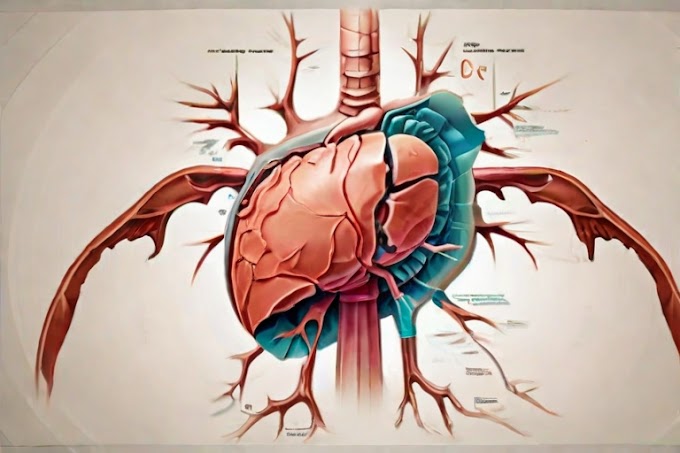Introduction
In today's fast-paced world, the prevalence of depression is on the rise, affecting millions of lives. This article aims to explore the various aspects of depression and provide practical insights on how to overcome this mental health challenge.
Understanding Depression
Definition and Types of Depression
Depression is not a one-size-fits-all condition. It encompasses a range of disorders, including major depressive disorder, persistent depressive disorder, and bipolar disorder. Understanding the nuances of each type is crucial for effective treatment.
Common Symptoms
Recognizing the symptoms of depression is the first step toward seeking help. From persistent sadness to changes in sleep patterns, being aware of these signs can facilitate early intervention.
Factors Contributing to Depression
Biological Factors
Genetics and brain chemistry play a significant role in predisposing individuals to depression. Exploring these factors can guide tailored treatment approaches.
Environmental Factors
External factors such as trauma, loss, or prolonged stress can contribute to the development of depression. Identifying and addressing these triggers is vital for a comprehensive cure.
Psychological Factors
Negative thought patterns and low self-esteem are common psychological factors associated with depression. Interventions targeting these aspects can be transformative.
The Impact of Depression on Daily Life
Effects on Relationships
Depression can strain relationships with family and friends. Communication and understanding are pivotal in navigating these challenges.
Impact on Work and Productivity
The workplace is not immune to the effects of depression. Recognizing the signs and implementing supportive measures can contribute to a healthier work environment.
Traditional Approaches to Depression
Medication
Antidepressant medications can be prescribed to regulate brain chemicals. However, their effectiveness varies, and it's crucial to work closely with healthcare providers to find the right fit.
Psychotherapy
Talk therapy, such as cognitive-behavioral therapy (CBT), is a cornerstone of depression treatment. It equips individuals with coping mechanisms and tools for long-term well-being.
Lifestyle Changes
Simple lifestyle modifications, including regular exercise, a balanced diet, and sufficient sleep, can positively impact mental health.
Holistic and Alternative Therapies
Exercise and Its Role
Physical activity has been proven to alleviate depressive symptoms by releasing endorphins. Incorporating exercise into daily routines is a powerful strategy.
Dietary Changes
Nutrition plays a role in mental health. A diet rich in omega-3 fatty acids, vitamins, and minerals can support overall well-being.
Mindfulness and Meditation
Mindfulness practices, such as meditation, can promote self-awareness and reduce stress. Integrating these practices into daily life is beneficial for mental health.
Building a Support System
Importance of Social Connections
Isolation can worsen depression. Nurturing social connections provides a valuable support system for those going through challenging times.
Seeking Professional Help
While friends and family offer support, professional intervention is often necessary. Overcoming the stigma surrounding therapy is crucial for seeking the help needed.
Coping Strategies for Daily Life
Establishing Routines
Predictability can be comforting. Creating daily routines adds structure to life, reducing feelings of chaos and uncertainty.
Setting Realistic Goals
Breaking down larger goals into manageable tasks prevents overwhelm. Celebrating small victories contributes to a sense of accomplishment.
Monitoring Negative Thoughts
Developing awareness of negative thought patterns is essential. Techniques like cognitive restructuring help in challenging and changing these thoughts.
The Role of Positive Habits
Importance of Self-Care
Self-care is not a luxury but a necessity, especially for individuals dealing with depression. Prioritizing personal well-being is fundamental to the healing process.
Incorporating Hobbies and Interests
Engaging in activities that bring joy and fulfillment is therapeutic. Hobbies serve as outlets for self-expression and distraction from negative thoughts.
Breaking the Stigma Around Mental Health
Encouraging Open Conversations
Open dialogue about mental health reduces stigma. Normalizing discussions surrounding depression fosters empathy and understanding.
Dispelling Myths About Depression
Educating society about the realities of depression dispels myths and misconceptions. Knowledge is a powerful tool in fostering a supportive community.
Seeking Professional Help
The Role of Therapists and Counselors
Professional guidance is invaluable. Therapists and counselors offer tailored strategies and a safe space for individuals to explore and address their mental health challenges.
Overcoming Barriers to Seeking Help
Barriers such as financial concerns or fear of judgment can impede seeking help. Identifying and addressing these barriers is crucial for accessing necessary support.
Creating a Depression-Free Environment
Support from Family and Friends
A strong support system is instrumental in the recovery journey. Educating loved ones about depression helps them provide meaningful support.
Encouraging Open Communication
Creating an environment where individuals feel safe to express their emotions fosters open communication. This, in turn, contributes to emotional well-being.
Personal Stories of Triumph
Inspirational Anecdotes
Real-life stories of individuals overcoming depression inspire hope. These narratives showcase that recovery is possible and motivate others to seek help.
Overcoming Depression Through Various Means
Highlighting diverse paths to recovery, including therapy, medication, and lifestyle changes, emphasizes that there is no one-size-fits-all solution.
Preventing Recurrence
Identifying Triggers
Understanding personal triggers is crucial in preventing recurrence. This self-awareness empowers individuals to proactively manage their mental health.
Implementing Long-Term Strategies
Building resilience through ongoing self-care and coping strategies is essential for maintaining mental well-being in the long run.
ALSO READ: Effects of Depression: The Silent Killer
Conclusion
In the journey to cure depression, a holistic approach that combines traditional methods, lifestyle changes, and a robust support system is key. Understanding the multifaceted nature of depression and embracing a personalized path to recovery empowers individuals to regain control of their lives.
FAQs
Can depression be cured completely?
- While complete cure might vary, many individuals successfully manage and overcome depression with the right support and interventions.
Is medication the only solution for depression?
- No, medication is one of several approaches. Therapy, lifestyle changes, and a supportive environment are equally crucial.
How long does it take to see improvements with treatment?
- The timeline varies, but consistent effort in treatment strategies often leads to noticeable improvements within weeks or months.
Are there natural remedies for managing depression?
- Yes, lifestyle changes such as exercise, a healthy diet, and mindfulness practices can complement traditional treatments.
What role do friends and family play in the recovery process?
- A supportive network is vital. Educating and involving loved ones can significantly contribute to the healing journey.






